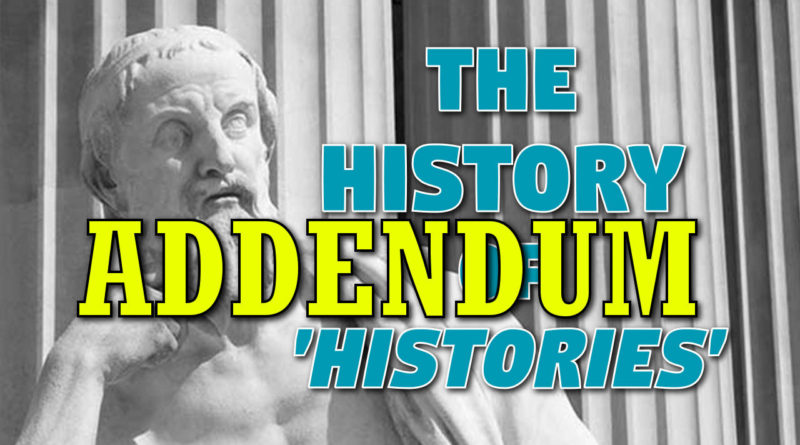The History of ‘Histories’ [Addendum]
This is an addendum to Article #30: The History of ‘Histories’ (24-Oct-2017). It was originally posted (on 26-Oct-2017) in the comments section of that article, as a reply to a question from Chad628.

This is an addendum to Article #30: The History of ‘Histories’ (24-Oct-2017). It was originally posted (on 26-Oct-2017) in the comments section of that article, as a reply to a question from Chad628.
Comments are closed.